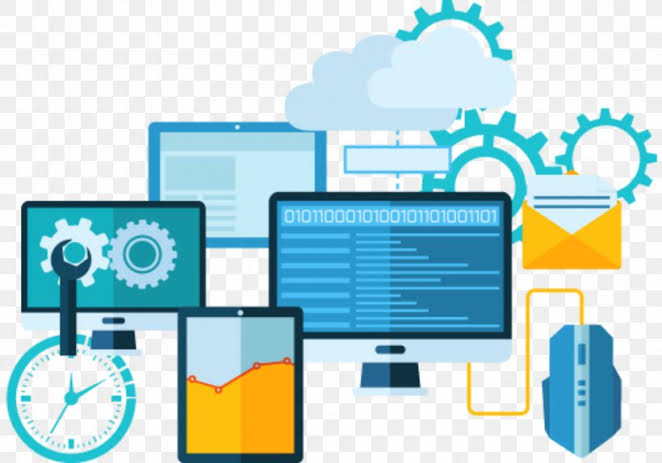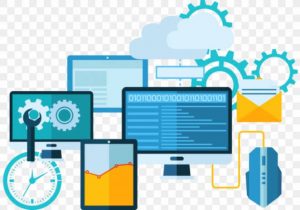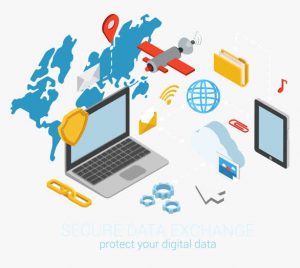
ETHICAL ISSUES OF INFORMATION TECHNOLOGY IN INDIA
By- Sangini Singhal
Information ethics has been defined as “the branch of ethics that focuses on the relationship between the creation, organization, dissemination and use of information, and the ethical standards and moral codes governs human conduct in society”. It provides a critical tree from considering moral issues concerning informational privacy, model agency, new environmental issues, problems arising from life cycle of information. Information ethics is related to the fields of computer ethics and the philosophy of information.
Ethical aspects of the information profession or analysed, including those related to Information dissemination.
ETHICS
Ethics or moral philosophy is a branch of philosophy that involves systemizing, defending and recommending concept of right and wrong conduct. The word ethics derived from the ancient Greek word ‘ethikos’ which is derived from the word at ethos (habit, custom). The branch of philosophy axiology comprises the sub-branches of ethics and aesthetics, each concerned with values.
Ethics and law
Ethics establishes what is good for the individual as well as what is good for the society and establishes the nature of duty people owe themselves and one another. Human beings have the ability, partly innate and partly acquired, to judge moral actions as partly good or bad, right or wrong.
Ethical, legal and social aspects of Information Technology.
Every technological invention has got both positive or negative impact on the society.
Privacy, Integrity, Security and Protection of Information and internet privacy means providing confidentiality to our personal data. One may not like, for example, to make public one’s insurance details, medical history etc. Information integrity means information provided Relevant, complete, up to date, trustworthy and available in time. Security and protection concerned with accidental and incidental destruction disclosure of data and programs by unscrupulous persons and in case data loss occurs how to recover it.

Ethics in Information
Information ethics has been defined as the branch of ethics that focuses on the relationship between organisation, dissemination, and the use of information, and the ethical standards and moral codes governing human conduct in society. It provides the critical framework for considering moral issues concerning informational privacy model agency, new environmental issues, Problems arising from the life cycle of information. Information ethics is related to the fields of computer ethics and the philosophy of Information.
Information Technology effects common issues such as copyright protection, intellectual freedom, accountability, privacy and security.
ETHICAL ISSUES OF INFORMATION TECHNOLOGY
Ethics is something that is universal to the human condition but this is not where we try to justify its origin or explain its ubiquity. While programmers are the most visible members of the information technology community, range of people who claim to be IT professionals is quite diverse.
1) Software piracy- software is the key tool or equipment used to deliver software services and very often an employer encourages the employee to use pirated software tools to deliver services. Sachin scenario is extremely unlikely in other professions use of stolen tools like screwdriver, spanner, wrench or stolen machinery is highly improbable.
2) Trade secrets – wild designs of frocks and machinery required to create and deliver them are always closely guarded in any organisation, the nature of the product in the information technology industry are such that they or for easier to transmit, copy and retain through widely used communication channels. This leads to greater risks.

3) Resume inflation – given the large number of people in the information technology business, the similarity in the background and qualifications among them and the fact that almost every company has large requirement of largely similar people – for example Java programmers or SAP consultants, the rate at which people change the jobs is very high in the IT business.
4) Conflict of interest – the high turn over of IT professionals also results in situations where colleagues working for the same company very often find themselves in competing companies can and does fall foul of personal relationships. Someone who was your boss on mentor, someone whom you admire and respect is now working for some rival. So could be a case with the spouse or the significant other since relationships within the industry are very common. In this case the nature and quantum of information that you can share is very debatable.
CONCLUSION
Therefore, I think that the need to know the difference between law and ethics in the information technology is extremely essential.
True. Good one.
Useful article. But until and unless the people didn’t develop ethics in themselves until then law will be violated and Cyber Crime will be happening.
Government machinery has to work effectively and efficiently.
Well defined article
Knowledgeable article
Great nice written